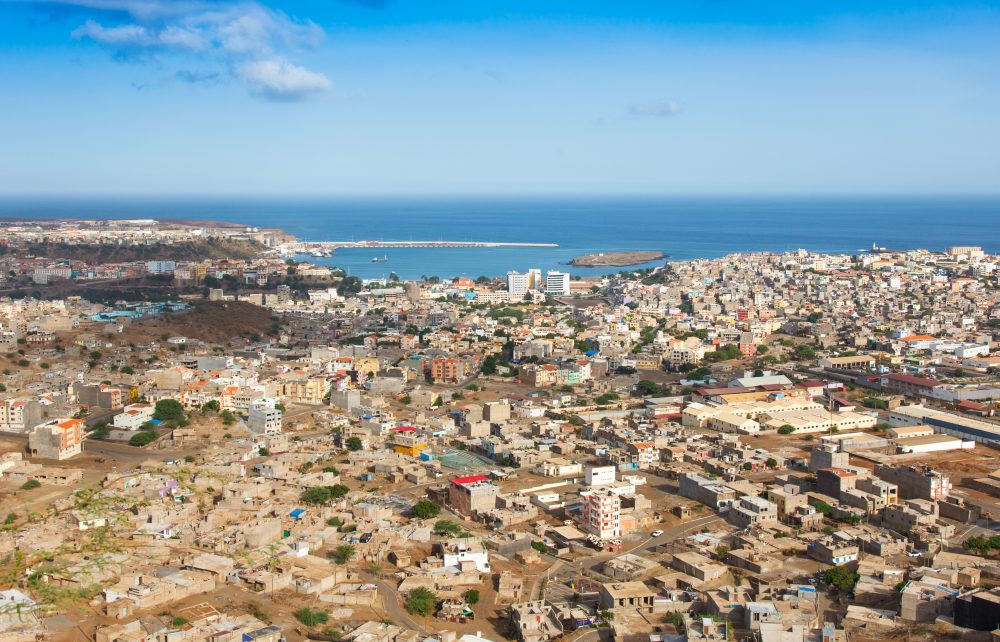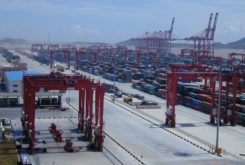With Huawei already a key player in Cabo Verde’s IT sector, Macao-based tech company Bringbuys Web Technology is taking firm strides to establish itself in the archipelago, which has ambitious plans for e-governance. The Macao company’s own ambitions extend to other Portuguese-speaking countries, both in the region and beyond.
A delegation from Bringbuys visited Praia this month, 13–15 June, following an agreement signed in Lisbon in 2018, between the company and Cabo Verde TradeInvest, that foresees the creation of a regional technology hub in Cabo Verde.
During the visit, negotiations continued for the installation of the technological hub, and the Macao delegation also furthered their knowledge of the local IT ecosystem.
With the hub in Praia, Bringbuys aims to enter the IT market of other West African countries, establishing in the Portuguese-speaking archipelago a cloud computing services platform for export.
The project also involves an offshore data centre, training institutions, and incubators.
In 2018, Cabo Verde TradeInvest President Ana Lima Barber and former NOSI Administrator Aruna Handem were in Macao for contacts with Bringbuys Web Technology, its partners, and the West Africa International Cloud Computing Center. Nuno Furtado, the delegate of Cabo Verde to the Permanent Secretariat of Forum Macao, accompanied them on the visit.
The first contact between the two sides happened at the 11th Meeting of Entrepreneurs for Economic and Trade Cooperation between China and Portuguese-speaking Countries, held in Praia in June 2017, which was organised by Cabo Verde TradeInvest in cooperation with Macao’s IPIM.
The investment, according to Macao Magazine, initially envisions building an international cloud computing centre, worth US$5–20 million. The centre will support e-governance, services for the citizens and road safety, as well as creating big data services.
After this pilot project, the investment could reach US$50 million in a second phase with an industrial park that will be used to train local staff and incubate companies.
Bringbuys selected Cabo Verde due to the quality of infrastructure, including energy, as well as geographical location, which will enable the company to expand to other countries in West Africa.
If the pilot project is a success, Bringbuys Web Technology also plans to expand to larger Portuguese-speaking countries outside Africa, such as Portugal and Brazil.
In 2017, the Operational Nucleus for Information Society (NOSI) of Cabo Verde and Chinese telecommunications company Huawei established a strategic partnership for the development of the e-government market, namely to develop solutions in the fields of Education, Health, Social Security, Local Governance, Registries, and Documentation. Prospecting new markets in the African subregion is also planned.
Huawei will also implement the Cidade Segura (Safe City) project, valued at US$20 million, providing for the installation of video surveillance cameras in the main urban centres, and the creation of a command communication centre and a control centre for all security entities.
With the implementation of the project, the Cabo Verde government expects an effective reduction of crime levels in the main urban centres of Praia and Mindelo, and on the islands of Sal and Boa Vista, with a view to also ensuring safety for the tourism sector, the engine of the country’s economy.
Huawei currently manages the network and supplies CVTelecom with transmission equipment, which affords it some negotiating power to try to take over the management of the company’s data centre.
E-governance is a central component of the State Reform Agenda, through the Strategic Information Society Program (PESI) and the Electronic Governance Action Plan (PAGE), which support a transformation of the country anchored in the intensive use of technological resources and in the qualification of human resources.
PESI contemplates partnerships between government, public and private academies, companies, civil society, diaspora and international partners.
Among the international companies identified are Huawei, along with Microsoft, Intel, Oracle and others from China, Portugal, Spain, and the US.




